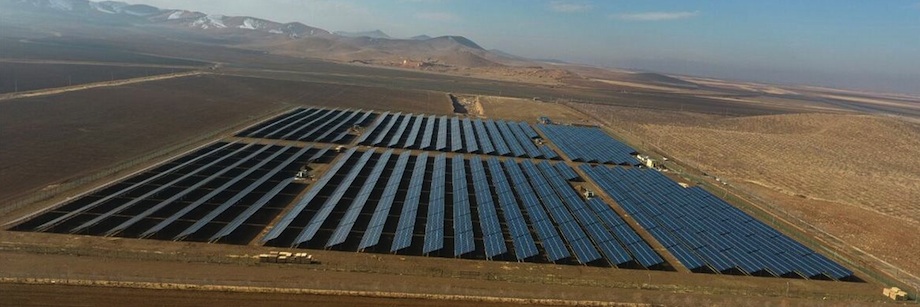The International Energy Agency (IEA) and the International Renewable Energy Agency (IRENA) are scheduled to present their latest findings on Monday, exploring how the globe‘s carbon footprint can be reduced by 70% by 2050, and completely phased out by 2060, bringing major economic gains.
In order to keep the global temperature rise below two degrees Celsius, as set out in the Paris Agreement of 2015, the way the world generates and uses energy needs to change on a global scale, the report said.
Renewable energy now accounts for 24% of global power generation and 16% of primary energy supply. To achieve decarbonization by 2050, renewables should account for 80% of power generation and 65% of total primary energy supply, according to the report titled The Perspectives for the Energy Transition: Investment Needs for a Low-Carbon Energy Transition.
The transition to a clean energy economy, naturally, requires substantial investment an additional $29 trillion until 2050, but the silver lining is that this amounts to a small share of global GDP (0.4%). Furthermore, as stated in the report, such investments would boost global GDP by 0.8 % in 2050, generate new jobs along with offsetting job losses in the fossil fuel industry, and improve human welfare thanks to reduced air pollution.
As stated in the report, solar PV capacity increased by as much as 50% in 2016 year-on-year, but asset financing for solar PV was significantly lower, largely because of cost declines, policy changes and integration concerns in specific markets , such as China and Japan.
Solar PV stands out as the largest single renewable energy employer, supporting 2.8 million jobs in 2015, which is an increase of 11% from 2014, the report reads, adding that wind and solar combined will become the largest source of electricity by 2030.
The report calls for policy efforts to pave the way to increasing renewables-based generation capacity and emphasizes the importance of considering the needs of those without energy access.
The Berlin Energy Transition Dialogue will wrap up on Tuesday. pv magazine is at the event, and will bring you further reports of the show.
This content is protected by copyright and may not be reused. If you want to cooperate with us and would like to reuse some of our content, please contact: editors@pv-magazine.com.




By submitting this form you agree to pv magazine using your data for the purposes of publishing your comment.
Your personal data will only be disclosed or otherwise transmitted to third parties for the purposes of spam filtering or if this is necessary for technical maintenance of the website. Any other transfer to third parties will not take place unless this is justified on the basis of applicable data protection regulations or if pv magazine is legally obliged to do so.
You may revoke this consent at any time with effect for the future, in which case your personal data will be deleted immediately. Otherwise, your data will be deleted if pv magazine has processed your request or the purpose of data storage is fulfilled.
Further information on data privacy can be found in our Data Protection Policy.